
A visitor's center there functions as a small museum. And a nature walk doubles as a time line-as visitors follow the path to the water behind the house, dated stone markers describe milestones in different periods of Monroe's life. The site is open to the public seasonally.
Located in historic Fredericksburg, Virginia, about 50 miles south of Washington, D.C., is the James Monroe Museum and Memorial Library. The museum and library were founded in 1927 by Rose Gouverneur Hoes. Hoes was the daughter of Samuel L. Gouverneur Jr. She also was the granddaughter of Maria Hester Monroe Gouverneur and the great-granddaughter of James and Elizabeth Monroe.
To avoid demolition of the building where her great-grandfather had practiced law, Hoes bought part of the city lot that he had owned from 1786 to 1792. She was the first of several Monroe descendants to donate family objects and furniture to build the museum's collection. Her son, Laurence Gouverneur Hoes, also donated pieces of family history. He oversaw an addition to expand the museum, too. He then gifted the museum and library to the state of Virginia. In 1966, the museum was declared a National Historic Landmark. Today, it is run by the University of Mary Washington.
This story is from the {{IssueName}} edition of {{MagazineName}}.
Start your 7-day Magzter GOLD free trial to access thousands of curated premium stories, and 9,000+ magazines and newspapers.
Already a subscriber ? Sign In
This story is from the {{IssueName}} edition of {{MagazineName}}.
Start your 7-day Magzter GOLD free trial to access thousands of curated premium stories, and 9,000+ magazines and newspapers.
Already a subscriber? Sign In
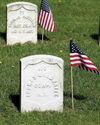
Putting the Pieces Together
Americans needed to begin to put the past behind them, come together, and plan for the future in the spring of 1865. But Abraham Lincoln, the man best equipped to lead them and who had hoped to restore the country as smoothly and peacefully as possible, had been assassinated.
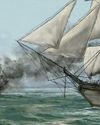
LAST SHOTS
The last Confederate forces in the Civil War didn’t surrender in the spring of 1865 or on a battlefield.
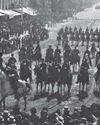
AND IN OTHER 1865 NEWS
A group of African Americans stop at the White House’s annual public reception on January 1, where they shake hands with President Abraham Lincoln.
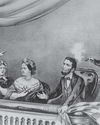
A Plot to Kill President the
For several months, actor John Wilkes Booth’s band of conspirators had plotted to capture President Abraham Lincoln and hold him hostage in exchange for Confederate prisoners.
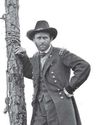
Let the Thing Be Pressed
In June 1864, Union Lieutenant General Ulysses S. Grant began a nearly 10-month campaign in Virginia.
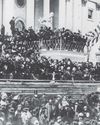
HEALING THE NATION
President Abraham Lincoln took the oath of office for the second time on March 4, 1865.

A Helping Hand
The spring season is hard in any agricultural society. Plants and animals are too small to eat.
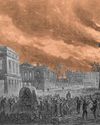
WAR SHERMAN-STYLE
As far as Union Major General William T. Sherman was concerned, the Civil War had gone on long enough.
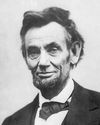
PEACE TALKS
The fall of Fort Fisher made clear that the Confederacy’s days were numbered. Southerners were tired and hungry.
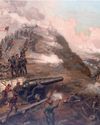
FORT FISHER'S FALL
Outnumbered Confederate soldiers inside Fort Fisher were unable to withstand the approach of Union troops by land and the constant Union naval bombardment from the sea.